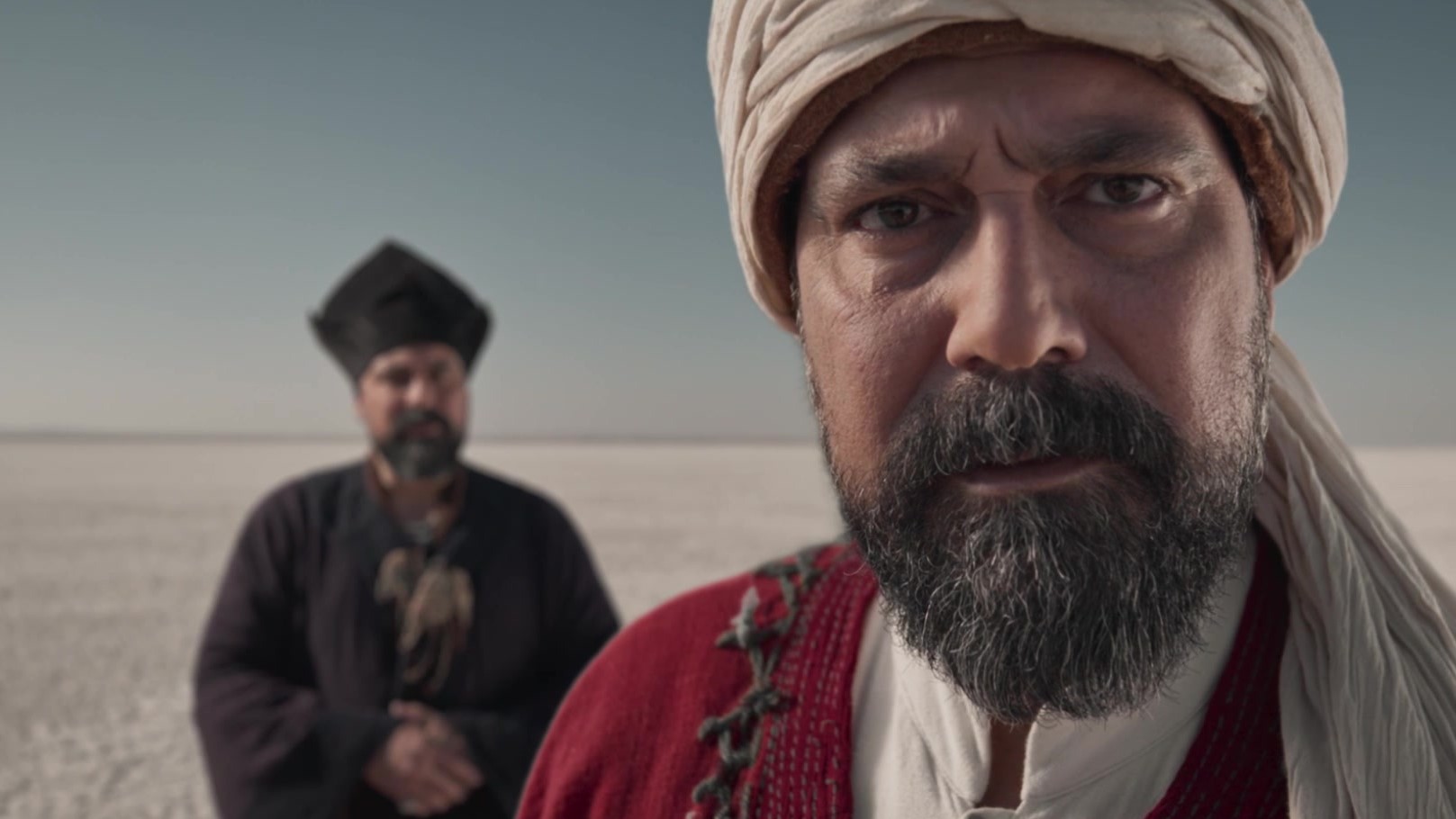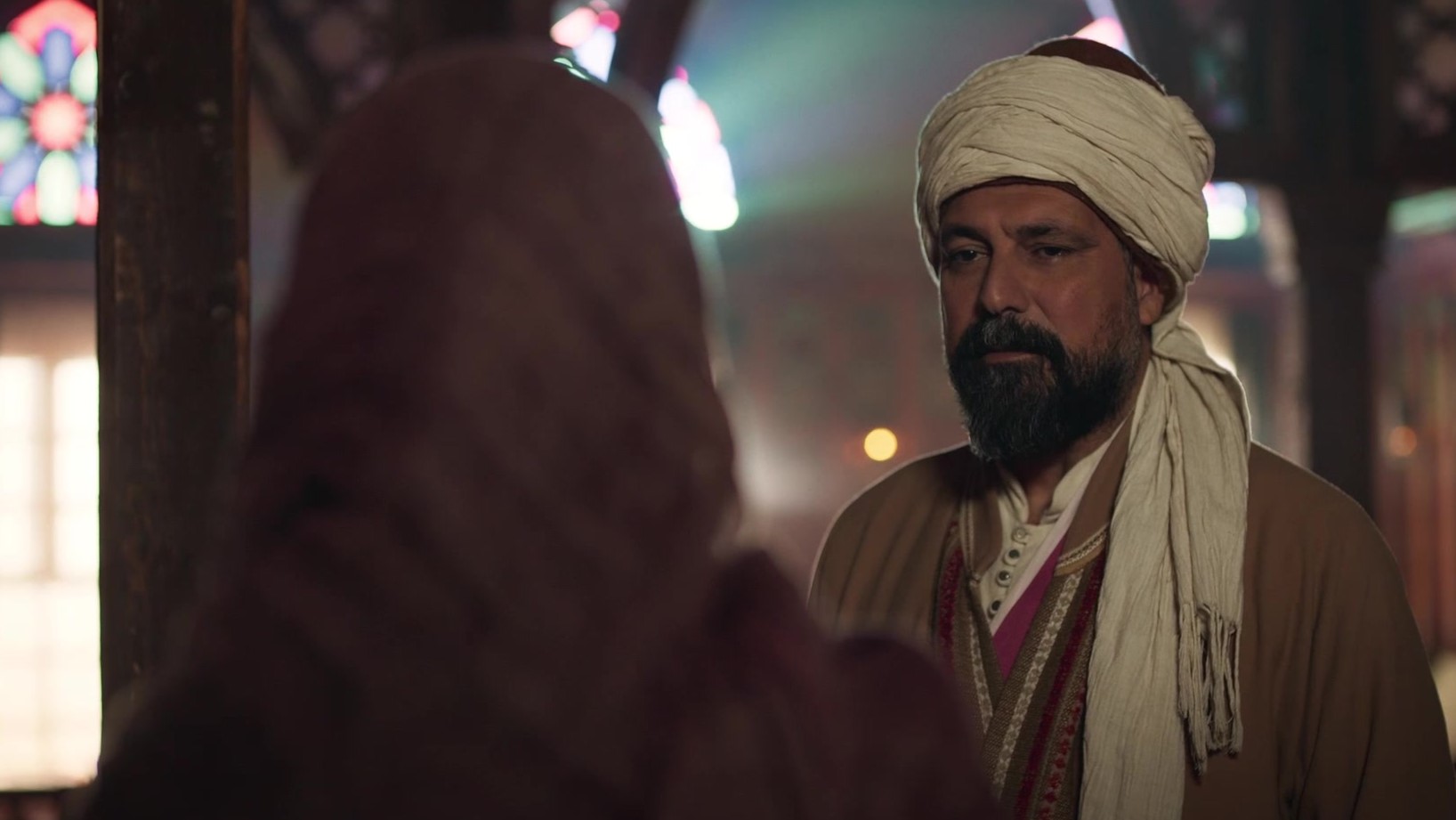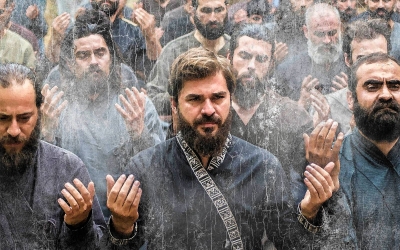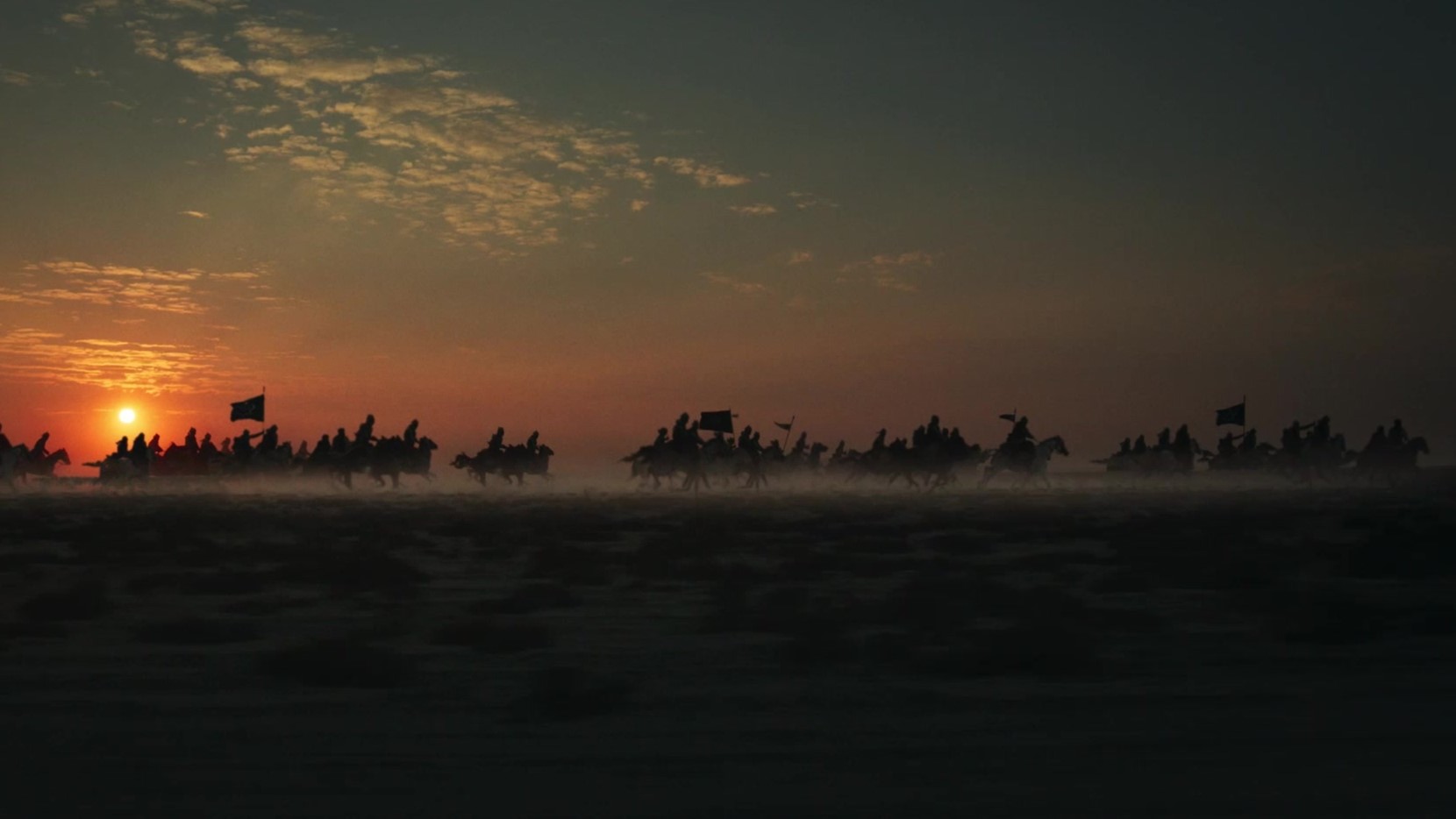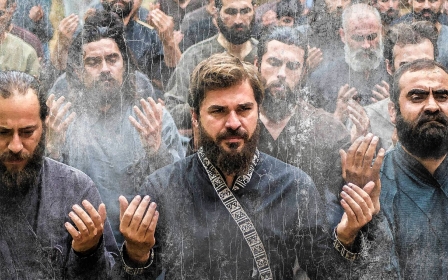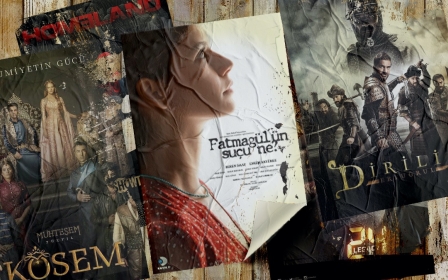Rumi: Why show about the Sufi mystic could be Turkish television's next Ertugrul
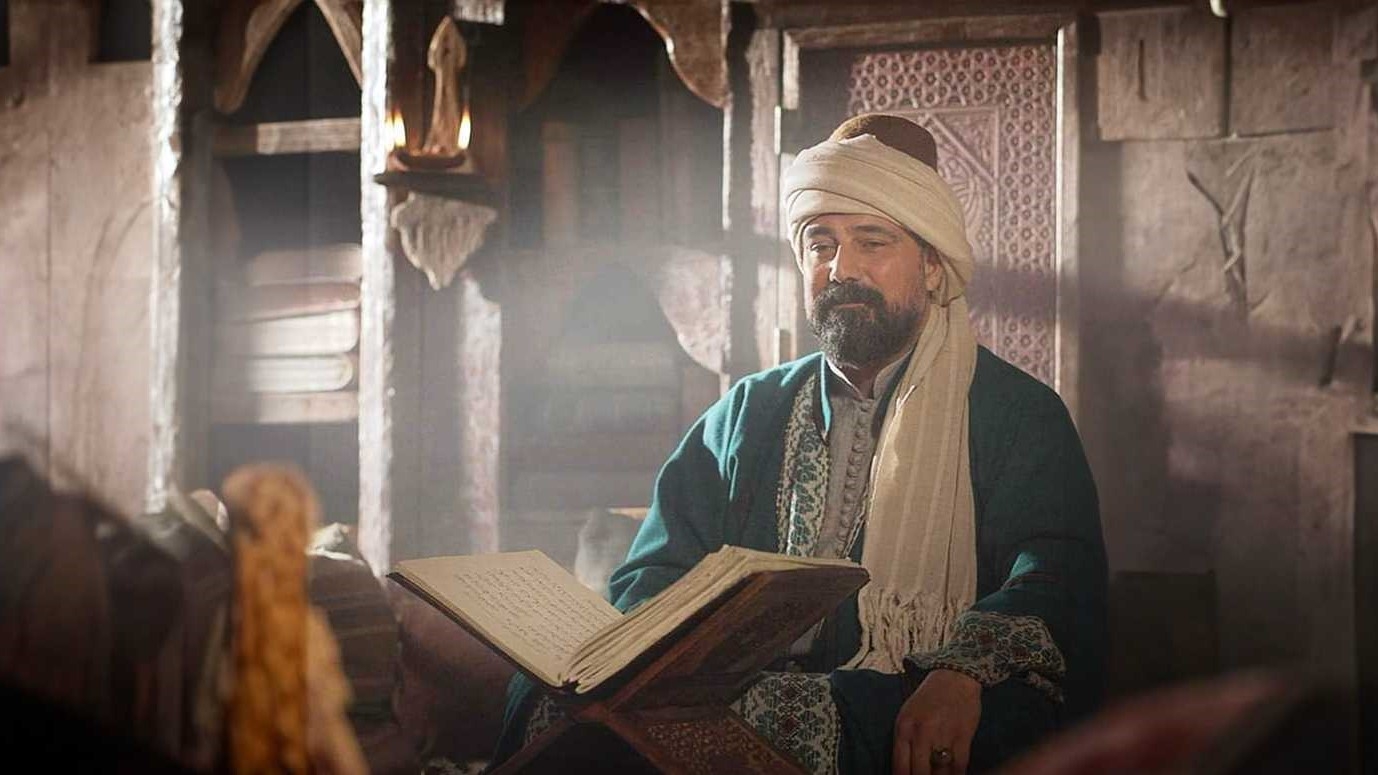
Since 2015, TV producers in Turkey have been fixated on one goal: creating a show that will outperform Dirilis: Ertugrul (Ertugrul: Resurrection), about the trials and tribulations of the eponymous Ertugrul, father of Osman, the founder of the Ottoman Empire.
Ertugrul was a sensation in the Arab world and Pakistan, and amongst British Muslims, as evidenced by Ertugrul-themed restaurants in the UK and sales of traditional Turkic Alp hats, which are worn by its characters.
Turkish public broadcaster TRT is hoping to repeat this success with its series about the legendary Sufi mystic, Jalal al-Din Muhammad Balkhi, better known as Rumi.
The poet and Islamic scholar is famous for his devotional poetry about divine love, which has earned him esteem in the Islamic world as well as the West, where his verses have sometimes been stripped of their religious undertones by artists and singers.
The new series, named Rumi, has much to compete with. Each episode of Ertugrul - there are hundreds - gets millions of views on YouTube, and at the time of publication, the Tabii Urdu channel alone, which is owned by TRT and publishes the episodes on the platform, had accumulated more than 8.7 billion views.
Few could have predicted Ertugrul's success in the Muslim world, particularly outside of Turkey. If there were one lesson Turkish producers have learnt, it is that there is a hunger for historical biopics amongst foreign Muslim audiences.
A spin-off series about Ertugrul's son, Osman, followed the original in 2019, as did one on the last major Ottoman sultan, Abdulhamid II, plus a biopic series about the Barbarossa brothers, the Ottoman corsairs, who controlled parts of the Mediterranean in the 16th century.
The last of these, Barbaros: Sword of the Mediterranean, starred Ertugrul actor, Engin Altan Duzyatan, as Oruc Reis, also known in the West as Redbeard.
While its successor shows racked up millions of views per episode, they weren't able to duplicate anything close to Ertugrul's viewership. So a lot is riding on the potential success of Rumi.
Written by screenwriters Ali Aydin and Milay Enzingen, directed by Can Olcay and produced by Keri̇m Ayyildiz; the starring role will be taken by Bulent Inal, who played Abdulhamid II in The Last Emperor.
Who was Rumi?
The main thrust of the story follows Rumi after he flees his native Central Asia, following the Mongol invasion. Born to a Persian-speaking family in Afghanistan in 1207, he later lived in what is today Iraq, Syria, and Turkey.
Rumi trained in religion at a young age, specialising in the Hanafi school of Sunni Islamic jurisprudence, and settled in the city of Konya in southern Anatolia, where his tomb is located today and is a major tourist attraction.
It is for his poetry that Rumi is most celebrated today, and he is widely considered amongst the greatest Persian language poets. It is difficult to understate Rumi's impact on Persian literature without hyperbole, given his influence on renowned poets such as Hafez and Saadi.
His poetic themes span various topics but his most well-known verses deal with the nature of god and the transcendence of divine love.
Rumi's collections have also influenced Turkish and South Asian literature and are read in their original languages - which include Persian, Arabic, Turkish and Greek - as well as in translations.
His most famous work is the Masnavi-e Manavi (Spiritual Couplets), which is composed of around 25,000 couplets that deal largely with religious issues - outward legalism derived from orthodox Islamic theology, but also Sufi wisdom, which focused on the inward contemplation of God.
Typifying the theme, a famous couplet from Masnavi reads:
"Come, seek, for search is the foundation of fortune:
every success depends upon focusing the heart."
The scholar and poet worked on his magnum opus until his death in Konya in 1273, but the book would become part of the canon of Sufi poetry for centuries to come.
One principle theme in the Sufi poetic tradition to which Rumi belonged was the overcoming of the "nafs" (the self). In Islamic theology, nafs roughly corresponds to the psychoanalytical use of the word "ego" and represents an aspect of the mind that is responsible for worldly desire and the drive for material power.
In Sufism and other Islamic mystic traditions, a Muslim's aim in life is to overcome this base aspect of the self, so that the true self or "ruh" (spirit) can connect with its creator, or God.
The love Rumi and other Sufis spoke about is a result of this union and is therefore distinct from romantic love. Nevertheless, Sufis believe divine love opens the doors for true love of all types, including between friends, as well as the romantic kind between a husband and wife.
Translations of Rumi's poetry have gained popularity in the West, although there is controversy over the way some artists have stripped back or downplayed the religious connotations of the original texts, and applied them exclusively to the concept of romantic love.
Later Western writers like Ralph Waldo Emerson and Rainer Maria Rilke are believed to have been influenced by Rumi's poems based on the common theme found in their works of looking for the divine within one's self.
Will it be the next Ertugrul?
It's clear that the producers of Rumi want to focus on the spiritual dimension of the great poet's life.
A trailer on the Tabii channel opens with Rumi amongst other Sufis, practicing a dhikr, which involves repeating the Islamic declaration of faith - that "there is no God but God".
One character is heard telling Rumi to "dive into the ocean", a common allegory within Sufism for the pursuit of divine knowledge.
He continues: "Two big challenges lie ahead, each bigger than the other; one in the earthly life, the other in the spiritual realm."
Rumi then learns that his material challenge is the threat the Mongols pose and the spiritual challenge is his own voyage of self-discovery.
The inclusion of the Mongols seems to be a plot device, given that they did not play a major role in Rumi's personal life after he left Central Asia.
Their presence, however, does provide an opportunity for the kind of epic battle scenes that helped win Ertugrul its huge fan base. Indeed, Rumi has its own - the trailer for the second episode depicts the Sultanate of Rum's defence against Mongol hordes in the city of Erzurum.
The mix of Islamic ideals and high-octane action in Ertugrul struck a chord with Muslim audiences, which have for decades been exposed to negative western depictions of their culture.
In a previous Middle East Eye article about the success of Ertugrul in the Islamic world and beyond, Riyaad Minty, director of digital at TRT, summarised the sentiment:
"The fact that it’s been able to resonate beyond just the Muslim world shows that, given the opportunity to tell our own stories, we will find that we as humanity have much more in common than we think," he said.
Therein lies the significance of Rumi and other shows that followed the success of Ertugrul: they are stories about Islamic figures told by people who know and value those personalities as their own.
Middle East Eye propose une couverture et une analyse indépendantes et incomparables du Moyen-Orient, de l’Afrique du Nord et d’autres régions du monde. Pour en savoir plus sur la reprise de ce contenu et les frais qui s’appliquent, veuillez remplir ce formulaire [en anglais]. Pour en savoir plus sur MEE, cliquez ici [en anglais].


